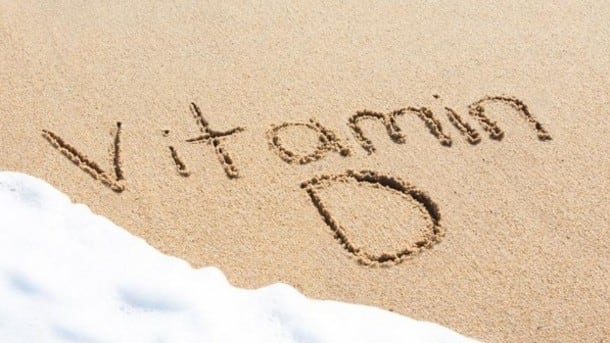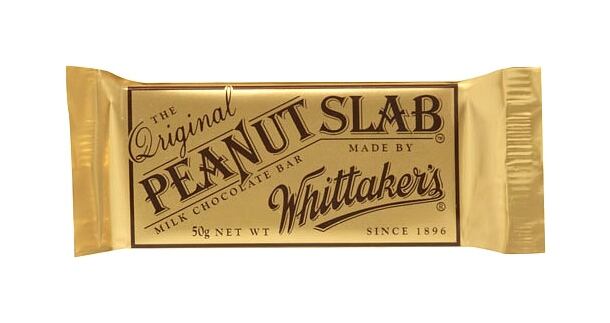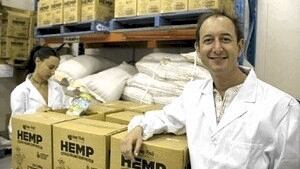Australians have become increasingly more conscious of the nutrition content of food since the time the term “superfoods” began to appear on grocery items in the late 1990s, an analysis of their production, consumption and opinions revealed.
It also found that the word itself was a creation of marketing and the media, and on the surface it could be easy to dismiss as a clever marketing ploy.
“But in fact, the history and use of superfoods globally goes much deeper than that, and the reasons for their popular appeal today are more than just superficial,” said Jessica Loyer, who conducted the study.
Indeed, she found that shoppers are drawn to superfoods because they are seen to be somewhere in between food and medicine.
"In our focus groups with consumers, we found that this in-between quality is part of what makes superfoods so alluring, or 'seductive' as one participant put it.
“However, while there is a strong awareness among consumers about superfoods, they are also confused by what's on offer, what benefits they might provide, how much to consume, and many other aspects of their production and origins," Loyer, of Adelaide University’s Food Values research group, found.
The fact that the are often seen as “exotic” or “primitive” suggests that their consumption is, in a way, a rejection of the highly processed food that consumers are being exposed to.
Yet despite this, most consumers are unaware of the kinds of processing that superfoods themselves undergo.
Interestingly, the taste of superfoods did not play an important role in consumers' decisions to purchase them, due largely to their consumption in blended smoothies to form a “meal that is considered to be part multivitamin and part preventative medicine”.
Loyer said that most consumers expressed skepticism towards superfood health claims and understood that they are being "sold an image".
"Nevertheless, consumers are happy to succumb to a bit of magical thinking and eat superfoods as a sort of extra insurance, because they believe that these foods might help their health, and probably can’t hurt," she said.
"This research helps us to examine and better understand ideas about what constitutes 'good' and 'healthy' foods, and our society's response to them.”
As real agricultural products that are produced, transformed and consumed by real people, “they're not just an invention of marketing spin,” Loyer added.
More stories from Down Under…
Sun-drenched Australians still in need of vitamin D supplementation
Guidance by an independent British committee of experts that advises everyone to take the so-called “sunshine vitamin” whatever the weather has been well received in Australia, where up to 58% of people suffer from vitamin D deficiency in spite of its climate.

Complementary Medicines Australia, the country’s apex natural health body, has welcomed last week’s report by Britain’s Scientific Advisory Commission on Nutrition which advised everyone over the age of one needs to consume daily supplements in order to protect bone and muscle health.
Limited amounts of vitamin D are found in foods such as oily fish, liver, eggs, milk and fortified cereals, but for most people the majority of their vitamin D is made from the action of sunlight on their skin.
Yet in a country where people are warned to protect themselves from the sun, many Australians do not receive sufficient vitamin D from casual exposure to its rays.
“A responsible and preventative approach is to acknowledge that a large proportion of the population is vitamin D deficient and not just those at high risk,” said Carl Gibson, chief executive of CMA.
“This is where vitamin D fortified foods and vitamin D supplements come into the disease prevention equation. More of us should be supplementing vitamin D as it is a cost-effective and easy approach to avoiding deficiencies.”
The British guidance follows the publication in January of an article in Australian journal MJA InSight 2 that encouraged proactive vitamin D supplementation, instead of testing for patients seen to be at risk of deficiency.
In it, Robyn Lucas, an epidemiologist with the Australian National University’s College of Medicine referred to “overtesting” for vitamin D by doctors.
“The [obvious question is], if you know your patient is at risk — sits in an office all day, or has other risk factors — why test them? Why not just supplement them?” Prof Lucas asked.
While the frequency of vitamin D testing rose dramatically in Australia between 2000 and 2010, though, according to one study, increased testing did not translate into improved health outcomes.
Study author Steven Boyages of the Western Sydney Local Health District said: “It is increasingly recognised by most doctors that there is little utility in vitamin D testing in the majority of the population.”
Indeed, Dr Boyages’ study found that only 4% of Australians suffered from moderate or severe vitamin D deficiency, suggesting that supplementation was sufficient for the rest of the population.
Chocolatier named New Zealand’s most trusted brand for fifth year
Porirua confectionery manufacturer Whittaker’s has been named New Zealand’s most trusted brand for the fifth consecutive year, in an annual survey commissioned by Reader’s Digest.

Managing editor Louise Waterson said that of all the names, products and services that fight for New Zealanders’ attention, Whittaker’s was the one they believed in most.
The results come not from a reader poll, but an independent, commissioned survey. Reader’s Digest used a market research agency to survey a representative sample of 1,214 New Zealand adults on the most trusted brands in 41 categories of products and services across a broad range of industries.
Whittaker’s also won the confectionery category and was voted most iconic New Zealand brand. Other food and beverage brands in the top 10 were Dilmah (6th), Huntley & Palmers (8th), and Tip Top Ice Cream (10th).
The survey also found that New Zealanders liked to start their day with Sanitarium and Vogels and end it with a Villa Maria wine.
Among the newcomers to the list of brands was New World, which was voted most trusted supermarket, a few months after it won a gold award in the Reader’s Digest Quality Service Awards.
Australian grower discusses hemp with Japan’s first lady
The chief executive of the Southern Hemisphere’s biggest hemp supplier has returned to Australia after meeting Japan’s first lady to discuss the future of the industry there.

Paul Benhaim, chief executive of Hemp Food Australia, attended the inaugural Kyoto Hemp Forum earlier this month, where he met Akie Abe, wife of prime minister Shinzo Abe.
Following their discussions, Benhaim said the first lady showed strong interest in his company’s vision for the crop, and even bought some of his company’s Elixinol hemp oil product for her husband to use.
“I was happy to have a productive discussion with Abe,” said Benhaim. “Hemp has strong roots in Japanese culture, and the first lady is excited about continuing the tradition of hemp in her great country.”
Kyoto mayor Daisaku Kadokawa and the chief priest of the Kamigamo Shrine, Yasuhiro Tanaka, also participated in a roundtable discussion on Japan’s hemp industry with the first lady.
Hemp Foods Australia was founded by Benhaim in 2000 and is now the largest hemp food wholesaler, retailer, manufacturer and exporter south of the equator. Last year, it was awarded a government grant of nearly A$600,000 for innovative food product development and increasing its factory size.
The company now exports to South Korea and distributes in Japan through its sister company, Hemp Foods Japan. Its products were nominated for the 2016 Japanese Vogue Beauty Awards.
“It is a major breakthrough to have an individual of high influence backing our cause in Japan, and Hemp Foods Australia hopes the first lady will engage leaders of Japanese industry in these critical conversations as we look to make a more sustainable planet through the use of hemp,” said Benhaim.
